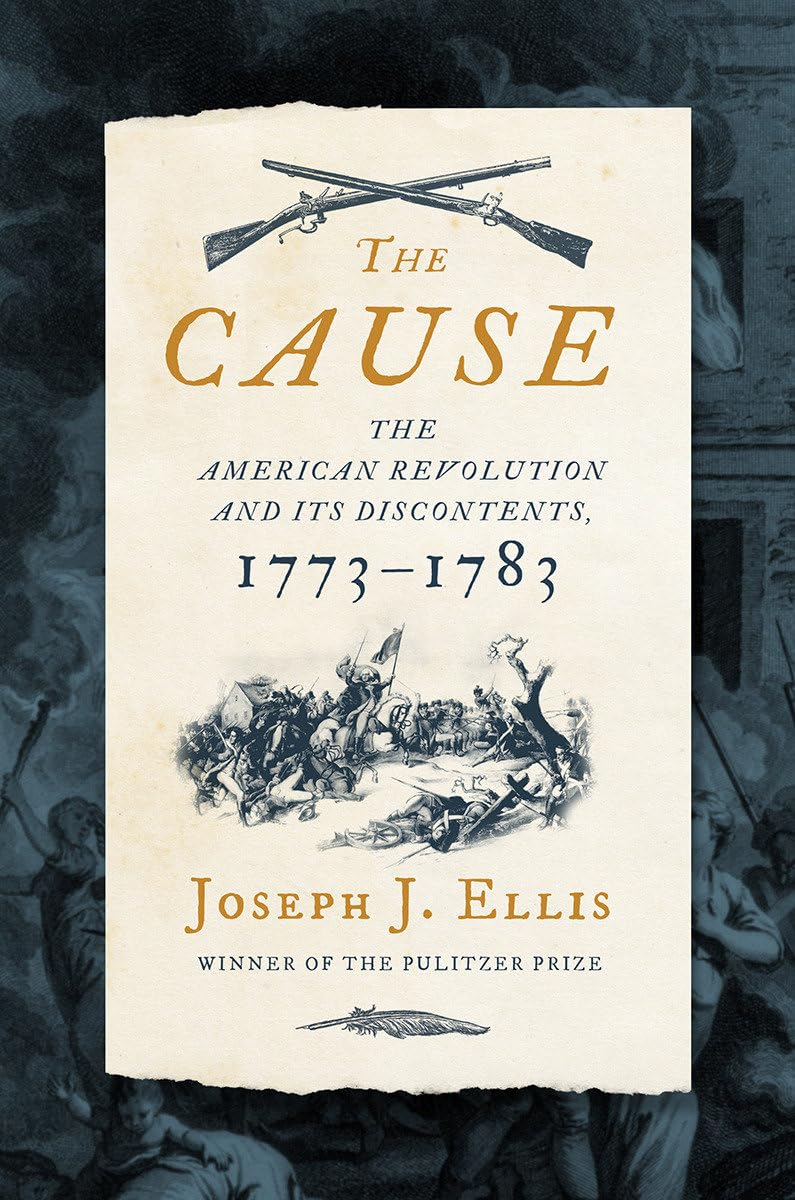In the summer of 1976, my family took a hot car trip in our Chevy Impala from our home in the middle of the country to be part of the bicentennial. I remember that visiting Philadelphia and colonial Williamsburg in Virginia made being an American feel tangible—a proud if vague connection to tri-cornered hats, seas of Betsy Ross flags and the spirit of ’76. The 250th anniversary of the founding of the United States is coming up in 2026, and now, no less than in 1976, the country could use reminders of how difficult and important becoming a democracy was. The U.S. Semiquincentennial Commission, commissioned by Congress to commemorate the upcoming anniversary, has the mission “to catalyze a more perfect union by designing and leading the most comprehensive and inclusive celebration in our country’s history.” This seems like an appropriate time to read a good overview of the American Revolution, as a lesson in what happened and why it mattered.
Unfortunately, Joseph J. Ellis’s “The Cause” is not that book. Mr. Ellis does cover the basics of the Revolution. The British Parliament imposes new taxes, colonists protest, tea is dumped, congresses meet, shots are fired, independence is declared, more shots are fired, winters are weathered, and a treaty is signed. The title aptly reflects how the revolutionaries drew supporters to a glorious cause without necessarily specifying its parameters. Artisans and laborers taking to the streets of Philadelphia did not want exactly the same revolution as wealthy merchants and planters did. Some ambiguity as to ends and means can make leading a coalition into revolution a little easier.
When King George III declares the colonies to be in a state of rebellion and appoints as Secretary of the American Colonies hard-liner George Germain, who had called the colonists “overindulged children,” Mr. Ellis ably conveys diverse reactions. Bostonian John Adams felt confirmed in his assumption that compromise was impossible. New Yorker John Jay recalled surprise among many of his friends—a common feeling of being slapped in the face like a naughty child. Pennsylvanian John Dickinson was filled with dread.
Yet, for most of its pages, “The Cause” is written in the ponderous self-referential style of a professor to whom students are required to listen. Clubby asides about professors Mr. Ellis has known seem of doubtful interest to any reader. Footnotes at the bottom of the page add tedious details, such as a rumination on the label “Treaty of Paris” versus “Peace of Paris” and the least interesting tidbit I have ever read about the usually fascinating Marquis de Lafayette.
